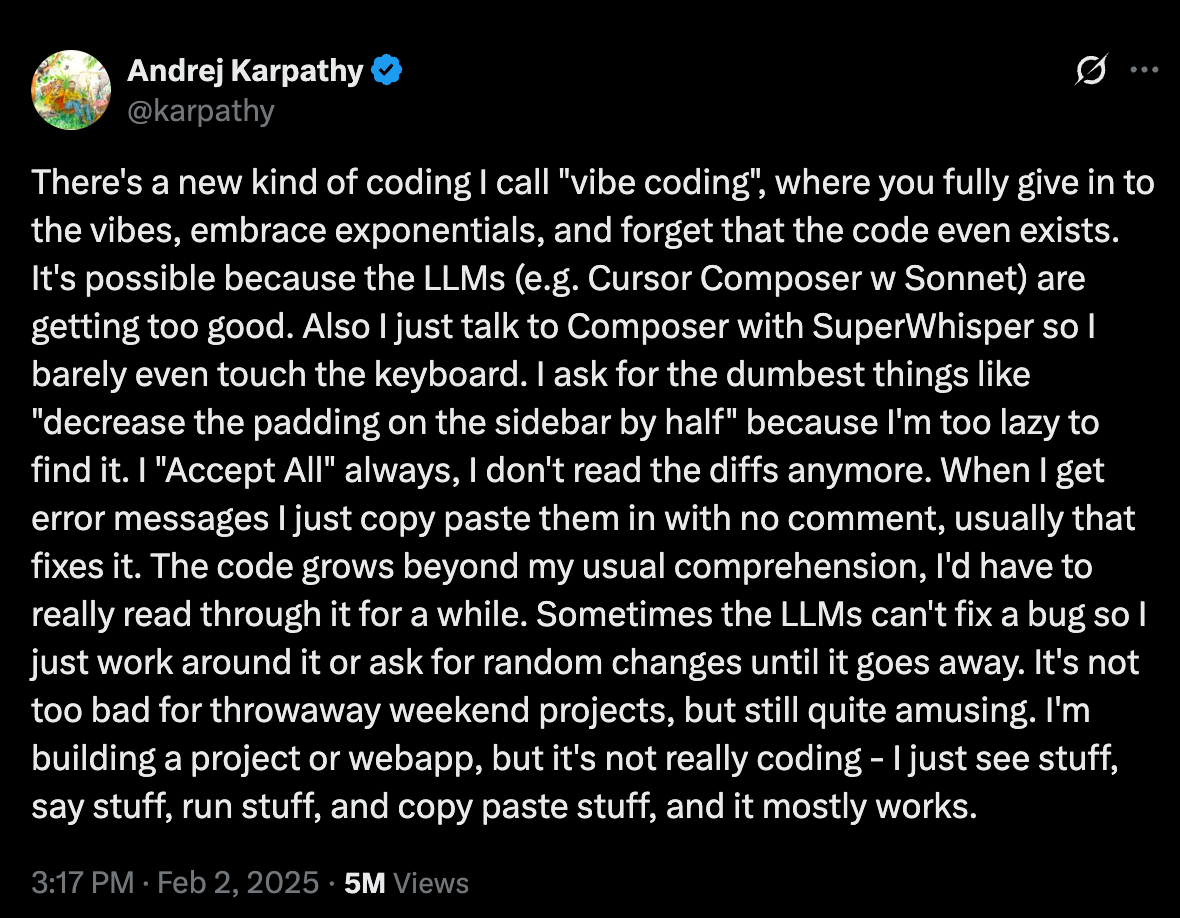The Agentic Knowledge Worker
The art of allocating intelligence
Dario Amodei (Co-founder & CEO of Anthropic) says the entry-level white collar knowledge worker is dead.
He could be right. But that raises a more interesting question:
What kind of knowledge worker will AI create?
Coding made nerdy hackers rich. Zuckerberg and Gates wrote code and they saw what code could become. Now we're at a similar inflection point, except the new tool isn't a programming language. It's AI.
Micheal Truell, one of the co-founders of Cursor said something revealing recently (I heard it at an event we attended hosted by Notion): "We don't consider ourselves a vibe coding platform even though we were mentioned in the original tweet."
What he meant was that they intended serious programmers use Cursor to push the ceiling higher, not to make coding feel good. For every casual "vibe coder," there's someone learning to bend AI to their will—someone who treats tokens like a new kind of capital.
I think these people will be the Agentic knowledge workers.
I was one of those entry-level workers Dario thinks will disappear half a decade ago. My first job was at a Bank, and like most knowledge work, it had a secret dirty ratio: maybe 40% real thinking, 60% grunt work. Every week I'd spend hours reconciling transactions in Excel. It wasn't why the Bank hired me—they hired me because I went to a good school and could grind through problems. But grinding was necessary.
Later, as a product manager at a Fintech, I'd read through thousands of customer tickets to find patterns. Again, grinding through data to get to insight. The company cared about the insights, not the grinding, but you couldn't get one without the other.
The grinding served a purpose though, working on the formatting made you more aware of the content, writing a feature spec makes you think more carefully. The new kind of grinding will probably also serve a purpose, like prompting and validating agent outputs.
But AI changes the ratio of grunt work dramatically. The grunt work disappears. But does that make the knowledge worker obsolete?
No—it makes resource allocation the core skill.
Before AI, knowledge workers allocated mainly one resource: their own time. You had to decide whether to spend Tuesday morning on that Excel reconciliation or on strategic planning. As you moved up, you allocated other people's time too, plus capital.
Now there's a third resource: compute. Specifically, AI agents that can do the grunt work. The question isn't whether you should spend time checking that all the fonts in your spreadsheet match—it's whether you should configure an agent to check fonts, or whether that's even worth solving.
This is harder than it sounds. When your main constraint was your own time, allocation was intuitive. You felt the cost of every hour. But compute feels free until it isn't, and delegation to AI requires entirely new judgment calls.
The best knowledge workers will be those who master this new allocation problem. They'll know when to use AI, when to do things themselves, and when to ignore problems entirely. They'll treat compute like a portfolio manager treats capital—as a scarce resource to deploy for maximum impact.
We're not just automating away grunt work. We're creating a new class of knowledge worker whose primary skill is knowing what to automate.
The talent war for Agentic knowledge workers could have already begun.
Source: https://www.bondcap.com/report/pdf/Trends_Artificial_Intelligence.pdf




